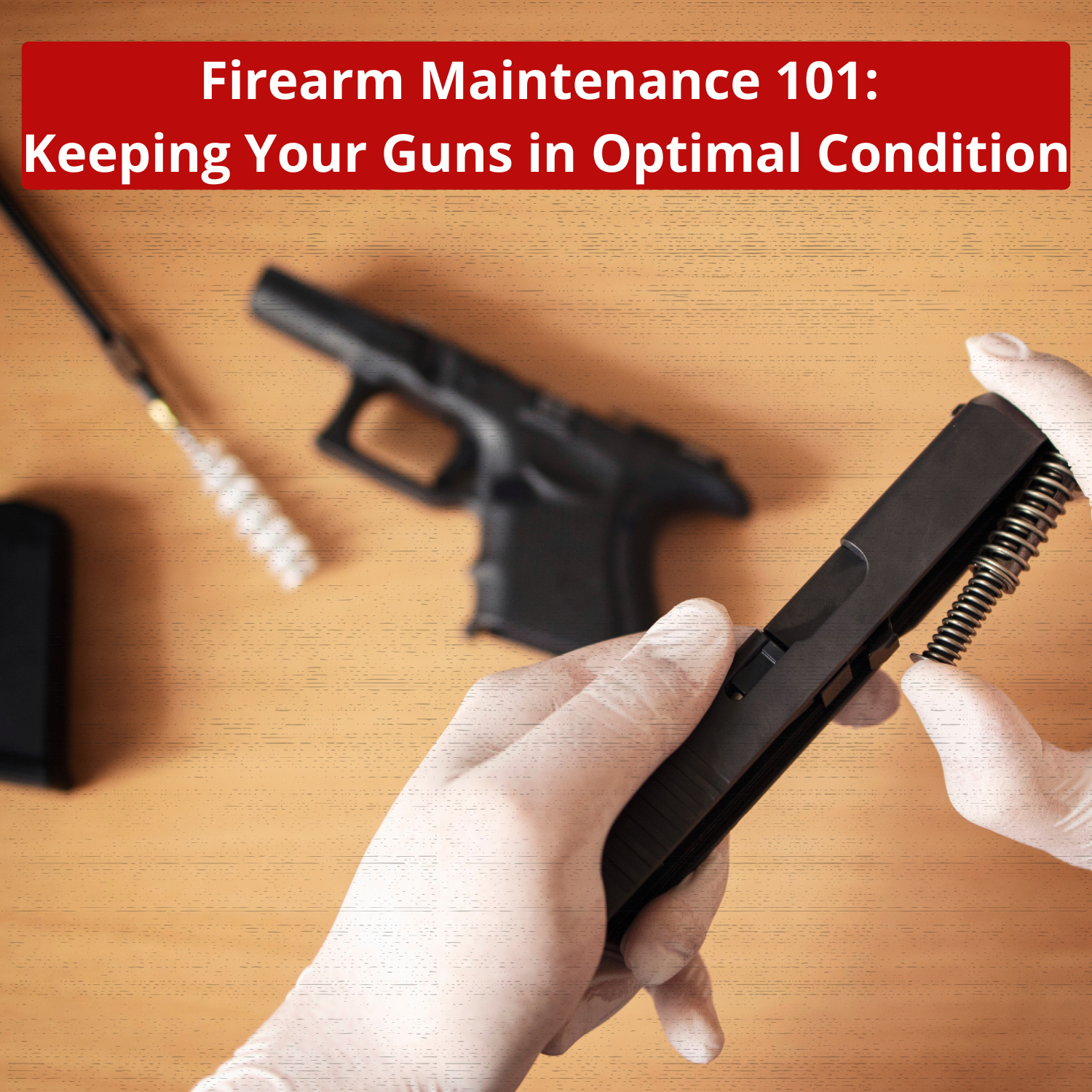Firearms are an investment that require care and attention. Whether you’re a seasoned gun owner or new to firearms, proper maintenance is crucial for ensuring safety, reliability, and longevity. A well-maintained gun not only functions smoothly but also prevents malfunctions that could compromise performance.
This guide covers everything you need to know about keeping your firearm in top condition, from cleaning and lubrication to proper storage and professional servicing.
Safety First: Preparing for Maintenance
Before handling any firearm for maintenance, safety should always be the top priority. Cleaning and inspecting a loaded gun can result in serious accidents, so following proper safety protocols is essential.
- Always ensure the firearm is unloaded before disassembly. Check the chamber, magazine, and barrel to confirm there’s no ammunition.
- Keep the gun pointed in a safe direction throughout the cleaning process.
- Store ammunition in a separate location to eliminate any risk of accidental discharge.
- Choose a clean, well-lit workspace that’s free from distractions.
By following these steps, you create a safe environment where you can focus on properly maintaining your firearm.
Essential Tools for Cleaning and Maintenance
To properly clean and maintain your firearm, you’ll need the right tools and cleaning agents. Investing in high-quality maintenance supplies ensures that your gun stays in top shape.
Some of the essential tools include:
- Bore brushes and cleaning rods – These remove debris and fouling from the barrel.
- Cleaning patches and solvent – Used to dissolve and wipe away residue.
- Lubricant and oil – Prevents corrosion and ensures smooth operation.
- Microfiber cloths – Helps clean and polish the exterior of the firearm.
Using these tools consistently will prevent carbon buildup, rust, and wear that can affect your firearm’s performance over time.
How Often Should You Clean Your Firearm?
The frequency of firearm maintenance depends on how often you use it. However, a general rule of thumb is to clean your gun:
- After every shooting session – Residue from gunpowder and lead can accumulate quickly, affecting accuracy and functionality.
- Every few months, even if unused – Moisture and dust can cause corrosion over time, so periodic maintenance is necessary.
If you carry a firearm daily for personal protection, cleaning it more frequently is advisable to ensure reliability when needed.
Step-by-Step Cleaning Process
Cleaning your firearm is more than just wiping it down. It requires proper disassembly, inspection, and reassembly to ensure every component is in optimal condition.
1. Disassemble the Firearm
Every firearm has a unique disassembly process, so referring to your owner’s manual is important. Typically, this involves removing the magazine, slide, and barrel for thorough cleaning.
2. Clean the Barrel and Bore
Apply a cleaning solvent to a bore brush and run it through the barrel multiple times to loosen debris. Follow up with cleaning patches until they come out clean. This step ensures accuracy and prevents misfires.
3. Wipe Down Internal Components
Use a solvent-soaked cloth to wipe down the slide, frame, and other metal parts. Pay attention to areas where carbon and grime accumulate, such as the firing pin and extractor.
4. Lubricate Moving Parts
Applying a small amount of lubricant to key components reduces friction and prevents wear. Avoid over-lubricating, as excessive oil can attract dirt and create buildup.
5. Reassemble and Function Check
Once all components are clean and lubricated, carefully reassemble the firearm. Perform a basic function check to ensure everything is working correctly before storing or using the gun.
Proper Storage: Protecting Your Firearm from Damage
How you store your firearm is just as important as how you clean it. Proper storage prevents rust, environmental damage, and unauthorized access.
- Use a gun safe or lockbox to keep firearms secure and out of reach of children.
- Store in a cool, dry place to prevent moisture buildup and corrosion.
- Use desiccants or dehumidifiers inside safes to reduce humidity levels.
- Regularly inspect stored firearms to ensure they remain in good condition.
Firearms that are stored improperly can deteriorate quickly, so taking the extra step to protect them will extend their lifespan.
When to Seek Professional Maintenance
While regular at-home cleaning is essential, there are times when professional maintenance is necessary. Gunsmiths have specialized tools and expertise to address deeper mechanical issues that may not be obvious.
Consider professional servicing if:
- Your firearm experiences frequent malfunctions or misfires.
- There are signs of excessive wear, rust, or damage.
- You’re unsure how to fully disassemble or reassemble the firearm properly.
Annual inspections by a gunsmith can also help catch small issues before they become major problems, ensuring long-term reliability.
Conclusion: A Well-Maintained Firearm is a Reliable Firearm
Taking care of your firearm is not just about keeping it clean—it’s about ensuring its safety, functionality, and longevity. By following proper cleaning routines, using high-quality maintenance tools, and storing it correctly, you can extend the lifespan of your firearm and keep it performing at its best.




